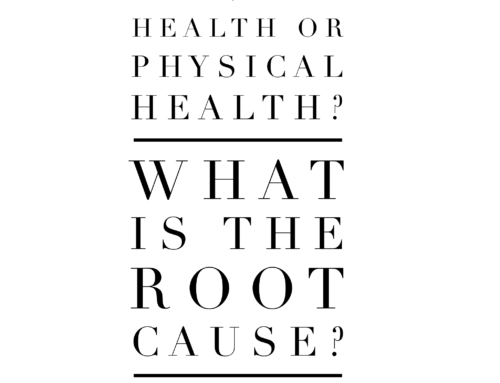Does your life feel chaotic? I can relate. Consider this question: is it your life that is chaotic or is it your state of mind? Many of us are juggling quite a lot and yes, sometimes maybe too much but before you start saying no to everything or removing your current obligations, consider if the chaos is due to you actually doing too much or if it’s due to the ability for you to actually focus on what you are doing? This article addresses how to cut the chaos and get focused so you can achieve much more than you ever imagined – all while maintaining a rich and rewarding personal life.
My Resources for Better Focus
I’m currently listening to the audiobook version of the book, Deep Work: Rules for Focused Success in A Distracted World by Cal Newport. Cal Newport is a professor at Georgetown University and is known for his ability to teach, be available to students, and write and publish a significant amount of academic papers as well as a number of books in a short period of time.
That’s not the most impressive part of Cal’s work – he is able to accomplish all this while working normal work hours and completely shifting his work and mindset away from work and to his family and other parts of his life when he leaves his office each day. It’s an excellent listen and I’m seeing some pretty profound changes as I implement Deep Work strategies into my life.
I’m only partway through and some of what I’ve learned is not 100% new to me. Some is what Diane Sanfilippo (a wildly successful young entrepreneur, NYT author, blogger, and podcaster) talks about at times in her badass Build a Badass Business Podcast and what Brenden Burchard teaches in his High Performance Academy (an amazing event that I highly recommend attending if you can).
Diane’s tips are more about entrepreneurship so they are helpful in other ways, many will apply but specifically listen to Tips on Focusing and How to Be More Productive). Alas, I ALWAYS learn the hard way and Deep Work is a good reminder and sort of a kick in the pants motivation for me to get back to being consistent about my work habits so I am 100% present with myself and my family when I am not working. Can you relate?
You Are Not Your Work And You Are Not Lazy…You Are DISTRACTED!
As much as we might love our work, our work is not the essence of who we are. That said, we all want to do great work but thinking about work when we are with our family and thinking about our family or other things we love when we are at work sabotages both our work and our personal lives.
It’s not that we are lazy, lacking motivation or will power – the problem is that we have way too many distractions that prevent us from fully engaging in life. As a result, many of us end up inadvertently training our mental capacity to be only partially focused and mostly scattered much of the time – sort of like occasional exercise. Occasionally doesn’t exercise the muscle of our mental capacity. In fact, it’s quite a lot like meditation, which requires consistent, mostly daily practice to reap the benefits.
Some distractions might be unavoidable so we need to try to minimize as many as possible to get any benefit at all. Distractions can be others in an office, multiple meetings, checking and responding to emails, instant messaging, social media, etc. Most of us need these things to do our jobs but what we are not doing (or perhaps I should say, what I tend to get out of the habit of…) is organizing these tasks into chunks of time while NOT allowing avoidable distractions to occur.
Here’s what happens, for example… we are in the flow, working on an article, then we see an important email come through. We open the email, perhaps respond to it, or maybe click through links, end up on social media, and get sucked in there for a bit… upon realizing our distraction, we get back to our article until something else distracts us. Each time we are distracted, a part of our consciousness is still back at what we were doing previously…a new project to get scheduled, a wedding invitation, someone commenting on a controversial Facebook post, etc. You get the picture. It’s a picture of chaos.
We Must Exercise Our Mental Capacity Consistently With Uninterrupted Focused Time
Here’s a better system, I’ve heard Diane, Brendon, and now Cal talk about this so it’s not new but I think many of us start this and then somehow get out of the habit when something disrupts our routine. It’s typical with many things such as diet and exercise. We must exercise our mental capacity consistently as we do (or should do) for our bodies. Haphazardly doesn’t cut it. What I am getting out of Cal’s book is what happens to our mental capacity and ability to focus when we don’t facilitate our days to allow for chunks of uninterrupted focused time. It’s really motivating me to get this down! You can create some order to the chaos…hence, no more chaos.
A big part of what we need to do is plan our days – scheduling in consistent chunks of time for uninterrupted serious focus or DEEP WORK (as Cal Newport calls it) and chunks of time for email, social media, phone calls, etc. Additionally, we need to schedule in time to disconnect from most everything. That means something like taking a walk, yoga, meditating, or enjoying a cup a tea with a friend. We need to give our brains a break sort of like how you need time between weight training to allow your muscles to recover and grow. Thankfully, day-to-day, your mind doesn’t need as much time for recovery and restoration as you need with weight training but an occasional full day and scheduled vacations are pretty awesome and restorative too.
To Make Progress, Incorporate Achievable Goals For Focus Time
Simply planning your day and carving out chunks of time for DEEP WORK is a big step but it’s likely not enough. Cal suggests goal setting and tracking. To me this is a lot like setting an exercise and/or meditation goal. Consider what you want to get done and set a goal for hours of DEEP WORK that challenges you. Start with a small chunk of DEEP WORK and be accountable to it. Record your time in hours per day of DEEP WORK and review it once a week. You can track simply by adding a tally mark on your calendar or better yet, make a chart for yourself that you have posted as a constant reminder. As you build your mental capacity to focus, add additional chunks of DEEP WORK time to your goal and so on. When you achieve one of your project goals, let’s say it’s an article for your blog, circle the DEEP WORK hours where this happened. For more about how to be accountable to yourself based on your personality, as Diane Sanfilippo, talks about in her Build a Badass Business Podcast episode, How to Be More Productive, I recommend Gretchen Rubin’s book, Better Than Before: Mastering the Habits of Our Everyday Lives.
We Must Block Out Time For Mental Recovery And Restoration
All work and no play won’t cut it either. In Deep Work, Cal talks about a study where participants are divided into two groups: one takes a walk in nature and the other walks in the city. After their walk, both groups do some sort of mental challenge. Then they switch. In both cases, when the participants walk in nature vs. a busy city, they actually perform 20% better. Why is this? It’s because in the city, they had to make decisions about crossing streets safely, getting around people, etc. whereas in nature, little decisions had to be made and their brains had time for some mental recovery and restoration. We must block out time for mental recovery and restoration
Getting Things Out Of Your Head And On Paper, Leaves More Mental Space For Your Mental Flow
Of course writing down to-do lists and keeping a calendar is a very basic step of what everyone should do regardless if they are able to get all the things done they write down. Getting things out of your head and on paper, leaves more mental space for your mental flow. It reduces the chaos.
There are many books and tools about productivity out there so obviously there is no one size fits all. But what does not work long term is flying by the seat of your pants. I personally love my Erin Condren Lifeplanner (thanks Diane #teambalancedbites)!
Keeping Your Mind Sharp And Focused Avoids Premature Aging And Mental Decline
The whys behind the hows in Cal’s book Deep Work impresses on me in a variety of ways. The techniques he teaches not only allows for better performance, better work/life balance and overall happiness – keeping your mind sharp and focused (the act of DEEP WORK), also avoids premature aging and mental decline (as in Alzheimer’s!). Cal doesn’t say this as far as I know (I’m not finished with the entire book as of this writing), but as a nutritional therapy practitioner, I know this to be true.
Are you motivated yet?
Getting Started With Cutting The Chaos And Getting Focused
Below are some basics to help you get started with your daily work flow, but I highly recommend checking out all the resources I’ve called out so far. Choose 1-3 of these ideas then add an additional step or more each week or so as you master what you started with. Be sure to check in with yourself at the end of each week, how did you do? Do you need to modify your strategy for the next week? How can you improve?
- Write down everything that needs to be done in your work life on a master list – divided by project (I recommend trying out Brendon Burchard’s free High Performance Academy 1-Page Productivity Planner as a start – you can modify it later to suit your needs.)
- Prioritize that list and write down 5 things that need to be done to move the project forward, or see what you can possibly delegate or remove.
- Make a rough schedule on your calendar of getting those tasks done.
- Set some goals for your DEEP WORK time based on the above.
- Start with either today or tomorrow if that’s your first day, and write down in a planner, what must be done that day and who you need to contact – ask yourself, what is WILDLY IMPORTANT (words from Cal in Deep Work)?
- Schedule blocks of time to:
- work on projects tasks that must be done (requiring DEEP WORK);
- tackle email, phone calls, internet research/articles and social media;
- take a mental break from being connected, making decisions, and hard tasks (such as meditation, a walk in nature, tea with a friend, etc);
- include other important projects and tasks such as blog articles, newsletters, etc. (more Deep Work time).*
- For each hour you are actually able to engage in DEEP WORK, tally those hours. Remember to circle where you able to finish a project. Review your DEEP WORK hours each week, did you meet your goal? Can you increase your DEEP WORK hours the next week?
- At the end of the day, start a “shutdown ritual” – take 10-15 minutes to write ahead any of the tasks that need to be forwarded to the next day, and what must be done the next day. Then actually say the words, “shutdown complete.” This is from Deep Work – I had never heard of the shutdown ritual before and I love it and am going to implement this too. Cal says to give it a couple weeks for it to stick!
*What about adding in extra work that you want to do? Cal recommends writing down your goals for all that you want to achieve and to scheduling a block of time to work on those goals. This will be part of your DEEP WORK. Improving his focus and productivity allowed him to get much more accomplished in a day, paving the way for being able to publish many more papers in addition to his books.
Additional Tips To Support Better Focus And Mental Restoration
Make some rules for yourself for example:
- Don’t check your email first thing in the morning if at all possible, be true to yourself and only check during your scheduled block of time (I learned this from Brendan Burchard…I did it for a while and recently started it back up).
- When you experience an unavoidable distraction, right then and there, if possible, commit to when you will reschedule your block of time to complete your current task or project (from Deep Work).
- When you are waiting around in line somewhere, don’t be tempted to fall into the easy and alluring habit of looking at your phone. Some of the best ideas have come from observing one’s surroundings. Being present. Be in the NOW. You can call me out if you see me break this rule (or any ideas/recommendations I mention, ever). I need reminders. Cal talks at length about this concept in Deep Work but I’ve heard it elsewhere too.
Don’t Neglect Scheduling Self-Care, Important Lifestyle Habits, and FUN!
Of course I can’t address every circumstance that comes up and I think it goes without saying that you also need to schedule your personal life too, including self-care activities such as meditation and exercise and time for some fun. I am not always that best at that either so I’m putting it out there right now – I’m going to be more consistent about scheduling fun too!
I hope you check out the resources I’ve shared and get some value out of this article. Although I am a Nutritional Therapy Practitioner, I am really so much more. The reason I named my business Nourishing Excellence is because I love exploring new self-development methods and tools to help me be a better steward of this world and for the people in it like you. Nourishing Excellence in every part of my life and helping you Nourish Excellence in your life too! Thanks for reading!







Thank you for a beautiful article Holly
Thank you so much for taking the time to read my post and commenting, Germana! I really appreciate it. I’m glad you like my article! -Blessings to you!